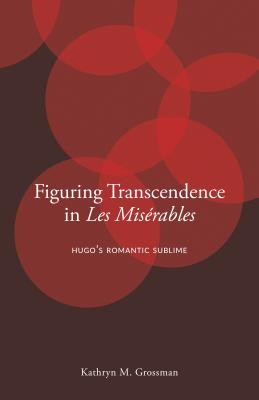
- We will send in 10–14 business days.
- Author: Kathryn M Grossman
- Publisher: Penn State University Press
- ISBN-10: 0271079142
- ISBN-13: 9780271079141
- Format: 14 x 21.6 x 2.5 cm, hardcover
- Language: English
- SAVE -10% with code: EXTRA
Reviews
Description
First published in 1994, Figuring Transcendence in "Les Misérables" is a book-length study of Victor Hugo's Les Misérables. Kathryn M. Grossman's authoritative command of Hugo's work and Hugo criticism enables her to situate the novelist's masterpiece in relation both to his earlier novels--up to and including Notre-Dame de Paris--and to the poetry published during his exile under the Second Empire. Drawing on Paul Ricoeur's theory of metaphor and on Thomas Weiskel's analysis of the romantic sublime, Grossman illustrates how the novel's motifs and structures correspond to a closely connected set of ethical, spiritual, political, and aesthetic concerns.
EXTRA 10 % discount with code: EXTRA
The promotion ends in 20d.09:24:39
The discount code is valid when purchasing from 10 €. Discounts do not stack.
- Author: Kathryn M Grossman
- Publisher: Penn State University Press
- ISBN-10: 0271079142
- ISBN-13: 9780271079141
- Format: 14 x 21.6 x 2.5 cm, hardcover
- Language: English English
First published in 1994, Figuring Transcendence in "Les Misérables" is a book-length study of Victor Hugo's Les Misérables. Kathryn M. Grossman's authoritative command of Hugo's work and Hugo criticism enables her to situate the novelist's masterpiece in relation both to his earlier novels--up to and including Notre-Dame de Paris--and to the poetry published during his exile under the Second Empire. Drawing on Paul Ricoeur's theory of metaphor and on Thomas Weiskel's analysis of the romantic sublime, Grossman illustrates how the novel's motifs and structures correspond to a closely connected set of ethical, spiritual, political, and aesthetic concerns.


Reviews